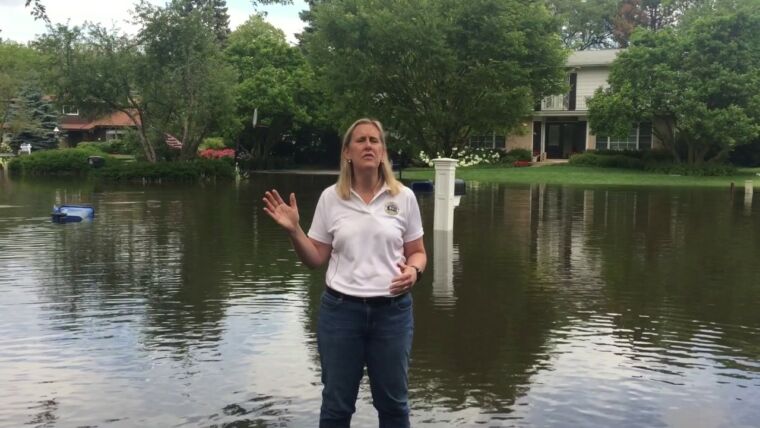The Federal Reserve is finally proclaiming the obvious and what I’ve been warning you of for years.
“The Fed said storms, floods, droughts and wildfires are among the “acute hazards” that could upend stable economic conditions.”
While this article is primarily about the threat of climate change to commercial and residential real estate and their underlying assets (mortgages and mortgage backed securities) to which they are tied,
“The Fed calls global warming a “growing economic and financial stability issue.” Real estate assets serve as an example, the report said.”
In other words, other assets are also in jeopardy like real estate, i.e. anything connected to the fossil fuel industry, and the financial institutions that holds their debt.
“The Federal Reserve yesterday warned for the first time that climate change has the potential to disrupt global financial stability.”
“”A sharp repricing, in turn, could create incentives to fire sale such assets by leveraged financial and nonfinancial firms.””
The financial tipping point for what will make stranded assets worthless is getting closer and closer. This in turn will cause massive reorientation in so many facets of life as we know it.
Federal Reserve Warns of Climate ‘Fire Sale’
Avery Ellfeldt
November 10, 2020
The Federal Reserve yesterday warned for the first time that climate change has the potential to disrupt global financial stability.
To reduce the likelihood of that outcome, the central bank said in a report that the financial institutions it oversees should monitor and control the climate-related risks they face.
The Fed said storms, floods, droughts and wildfires are among the “acute hazards” that could upend stable economic conditions. Given that those events are intensifying with climate change, U.S. banks should develop more information about how rising temperatures could affect the value of assets ranging from loans to beachfront properties, the report said.
“It is vitally important to move from the recognition that climate change poses significant financial stability risks to the stage where the quantitative implications of those risks are appropriately assessed and addressed,” Fed Gov. Lael Brainard said in a statement.
Brainard, who heads the Fed’s financial stability committee, has emerged in recent days as a contender to be President-elect Joe Biden’s pick for Treasury secretary.
The central banking system itself is getting up to speed on climate risks by conducting research to better understand how global warming could affect the financial system. It’s engaging with the international regulatory community to develop ideas for addressing climate-related threats to the economy.
The Fed calls global warming a “growing economic and financial stability issue.” Real estate assets serve as an example, the report said.
Residential and commercial properties will be increasingly threatened by extreme weather events including hurricanes and storm surges that result from sea-level rise. Those natural disasters are likely to drive down the value of at-risk properties — thwarting real estate loans and mortgage-backed securities, the report said.
“Given the uncertain timing and severity of future climate-related flooding and the associated opacity of asset exposures, investors in real-estate-linked assets may react abruptly to new information about a region’s exposure to climate-related financial risks,” the report said. “A sharp repricing, in turn, could create incentives to fire sale such assets by leveraged financial and nonfinancial firms.”
Enhanced climate-risk measurement and disclosure, the Fed argued, would help ensure that the financial system is accurately pricing climate risks, “thereby reducing the probability of sudden changes in asset prices.”



